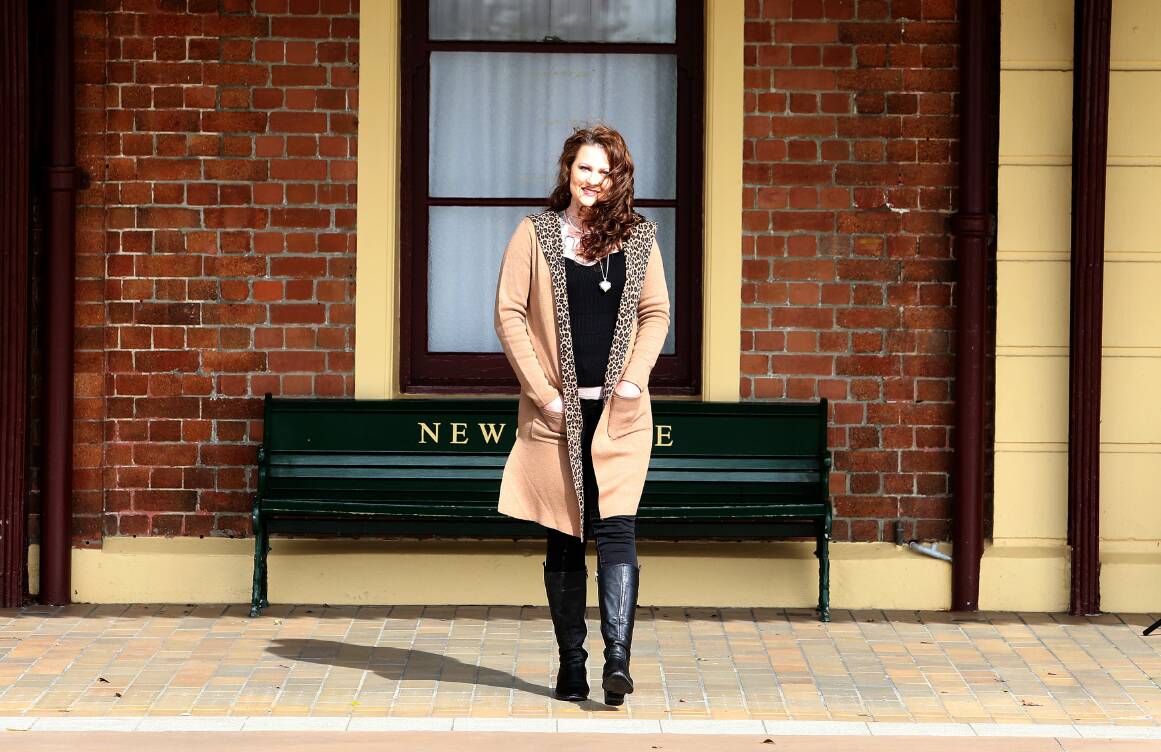
Transplant patients in the Hunter are being urged to seek antibody treatments from the national medical stockpile to protect them against COVID-19.
Hunter resident Victoria McGee has received free injections from the stockpile of the monoclonal antibodies tixagevimab and cilgavimab, which come under the brand name Evusheld.
The federal government bought 36,000 of these drugs from pharmaceutical company AstraZeneca.
Ms McGee, a country music singer, had a heart transplant in May 2019.
The pandemic has been a terrible time for about half a million Australians, like Ms McGee, whose immune systems are compromised.
Ms McGee, who runs a patient support network across the country, wants other transplant patients to be aware of these drugs and gain easy access to them.
"I had to go digging to find the guidelines on how you're eligible. I had to push it through hospital systems myself, through my support group, and ask why haven't we got it, why has there been no correspondence about it.
"I know a lot of first-year transplant patients across Australia who have not been offered the drug or been made aware of it, or are being denied it."
She said various state governments were making it difficult to get the drug by "setting different guidelines with different criteria against even what the TGA [Therapeutic Goods Administration] has advised for access to these treatments".
"There can't be different rules. You're immune-compromised and a transplant patient or you're not."
A federal Department of Health statement, dated June 8, stated that Evusheld was "provisionally approved" by the TGA on February 24.
The intra-muscular injection was for people aged 12 and older "with sub-optimal or no protection from COVID-19 vaccines".
"Global supply constraints necessitate triaging of patient access to Evusheld for those who are at highest risk of disease progression and likely to derive the most benefit.
"Evusheld will initially be prioritised for ... severely immunocompromised individuals not expected to mount an adequate immune response to COVID-19 vaccination, or due to underlying medical conditions or treatments that compromise the body's immune system."
An AstraZeneca Australia spokesperson said the company had "built a global supply chain to support production of Evusheld and we are committed to providing supply to all countries as quickly as possible, where we have firm agreements".
Ms McGee received her free injections of the drug this month at St Vincent's Hospital in Sydney, where she had her transplant.
"At other treating transplant hospitals across Australia, we're finding we have major teething issues to roll out the drug."
She said a liver patient had trouble getting it through John Hunter Hospital, but lung transplant patients had good access.
Peter Wark, a University of Newcastle conjoint professor and senior staff specialist, said the drugs "are available in the Hunter and we are using them".
"The respiratory department has contacted each of our transplant patients and we have given Evusheld to two thirds of them now.
"The antibody is designed to persist in the blood and prevent infection."
He said NSW Health had a model of care to provide the medication for at-risk patients and it was "up to each local health district to provide a service".
He urged transplant patients to ask their specialist teams about getting access to the drugs.
However, not all transplant patients still have specialists.
Dr Wark said it could be argued that transplant services could be more proactive in keeping track of patients and notifying their local health districts about who they are.
This could save people from having to travel to Sydney to get the drugs from where they had transplants.
The federal statement said the medicine was provided to the states "through the national medical stockpile".
"To access supplies of Evusheld, healthcare professionals should contact their relevant state or territory health department."
Immune-suppressed people can also access antivirals, but Ms McGee said "a lot of hospitals have been reactive to us getting COVID, instead of proactive".
"Some people in my support group didn't come out of COVID. They never left the hospital. Extra layers of protection are vital to people like us," she said.
Dr Paul Griffin, director of infectious diseases at the Mater Health Services in Brisbane and Associate Professor at The University of Queensland, said the antibody drugs were "really important".
"A proportion of the population - estimated at 2 per cent - won't be able to respond to vaccination to sufficient degrees," he said.
"Those people remain vulnerable. That's why this medication was such a big advance in my opinion. It gives them a level of protection that will go a long way to preventing them progressing to severe disease. I think we need to do more to let people know it exists, who's eligible and how they can get it."
In June, the US FDA doubled the dose for Evusheld due to the new Omicron subvariants. It recommended repeating the dose every six months. Australia hasn't followed suit yet.
Dr Griffin, a leading voice in Australia on the pandemic, said there was some evidence that the dose "may need to be increased against the new subvariants".
"It's a delicate balance with availability. At the moment, I think our current guidelines are correct. As more data emerges, there may be a need to revise that."







